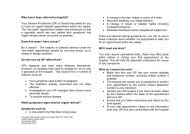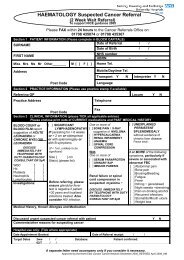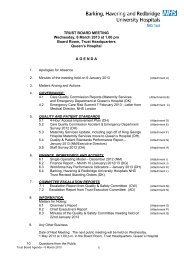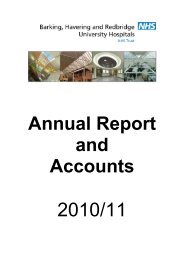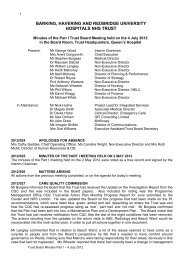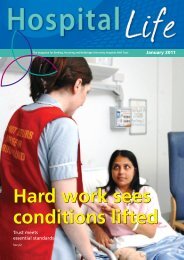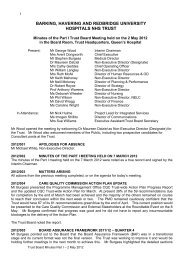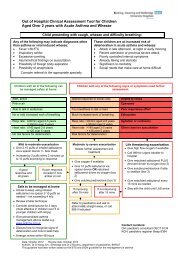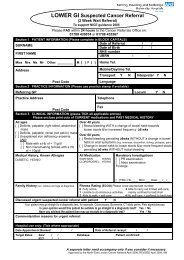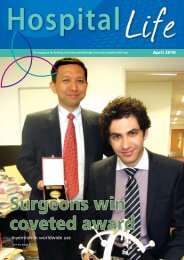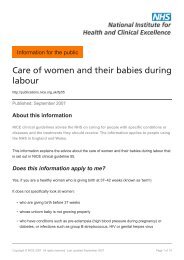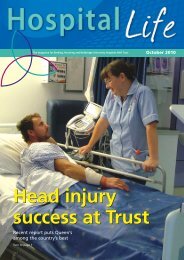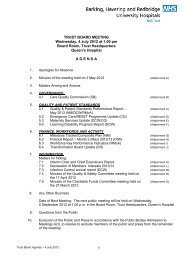BHRUT annual report 2009 - Barking Havering and Redbridge ...
BHRUT annual report 2009 - Barking Havering and Redbridge ...
BHRUT annual report 2009 - Barking Havering and Redbridge ...
You also want an ePaper? Increase the reach of your titles
YUMPU automatically turns print PDFs into web optimized ePapers that Google loves.
Annual Report & Accounts <strong>2009</strong>-2010<br />
13<br />
address the causes of sickness among the staff. A<br />
revised Management of Sickness Absence policy <strong>and</strong><br />
procedure was adopted in <strong>2009</strong>. This provides a<br />
procedure for managing <strong>and</strong> supporting people who<br />
are either persistently absent over short periods or<br />
have a long period off sick. Managers are responsible<br />
for monitoring sickness among their staff, being aware<br />
when patterns are emerging <strong>and</strong> dealing with issues<br />
quickly <strong>and</strong> informally so that a formal review is only<br />
conducted in serious cases. Return to work meetings,<br />
after every period of absence, strengthen the focus on<br />
the ongoing management of attendance.<br />
Staff Survey<br />
The <strong>annual</strong> NHS staff survey - which gives staff a<br />
confidential opportunity to record their views on being<br />
employed by the Trust - highlighted the aspects of<br />
performance that employees felt were good <strong>and</strong><br />
where management needed to concentrate efforts.<br />
Staff at the Trust took part in the <strong>2009</strong> National Staff<br />
Survey responding to questions about their<br />
experiences of working at King George <strong>and</strong> Queen’s<br />
hospitals. The survey showed the progress made in<br />
the previous year had continued. It found six areas<br />
where findings were better than average for acute<br />
trusts, including four where the Trust’s findings were<br />
in the top 20% including staff feeling their role makes<br />
a difference to patients, staff witnessing <strong>and</strong> <strong>report</strong>ing<br />
errors, near misses or incidents <strong>and</strong> staff experiencing<br />
physical violence from staff.<br />
Eighteen of the 40 key findings showed an<br />
improvement, with only one worse than the previous<br />
year. Improvements were seen in areas such as staff<br />
receiving job-relevant training, learning or<br />
development, having well structured appraisals, work<br />
pressure felt by staff <strong>and</strong> percentage of staff having<br />
experienced physical violence.<br />
Our staff



![[4] Biopsy Leaflet.pub - Barking, Havering and Redbridge University ...](https://img.yumpu.com/51285530/1/190x134/4-biopsy-leafletpub-barking-havering-and-redbridge-university-.jpg?quality=85)
